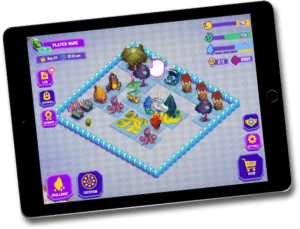Incorporating New Virginia Computer Science Standards

This July the Virginia Board of Education accepted for official review the new Computer Science Standards of Learning Curriculum Framework. The new set of standards will not be formally tested, but educators in Virginia are expecting the standards to be implemented by the 2020 school year.

For many teachers this may be stressful, as more standards mean more things for teachers to plan, prep, and fit into the school day. Gail Wiltshire, an Instructional Technology Resource Teacher (ITRT) in Virginia says not to worry. “Most of it can easily be integrated into your lessons,” she says. “And lots can be done unplugged.”
Take the first standard for Kindergarten, for example. Standard K.1 reads “The student will construct sets of step-by-step instructions (algorithms) either independently or collaboratively including sequencing, emphasizing the beginning, middle, and end.” There are plenty of situations where your students might create instructions, and there are many ways such a lesson could overlap with other standards. For example, algorithms could correspond to the literacy standards for giving and following multi-step oral directions.
Many people equate computer science with coding, but there’s more to it than that. As the Virginia Board of Education states, computer science is about “collaboration, communication, and fostering an inclusive culture,” as well as “performing a computational task by working in pairs and on teams, including working with individuals with diverse perspectives, skills, and personalities.” These types of activities are often part of a classroom space naturally, so including these new standards shouldn’t be too much of a stretch on the existing curriculum.

Teachers in Virginia can think about incorporating digital games like Squiggle Park and Dreamscape into their curriculum to help students develop literacy skills related to specific components of the new computer science standards. They can also reach out to their Instructional Technology Resource Teachers or Coaches for help with planning new activities, or modifying existing activities to make the new standards fit.
Cait Levin is Director of Research and Instructional Technology at an independent school in Boston. She completed her BA at Barnard College and her MA at Middlebury. She has held a variety of roles at schools, including overseeing writing centers, advising, collaborating with faculty on instructional design and technology, and classroom teaching. She has taught elementary, middle, and high school courses in English, history, entrepreneurship, and design thinking. She also works with edtech companies to discover strategies for best practices when collaborating with teachers. You can find her on twitter @CaitLevin